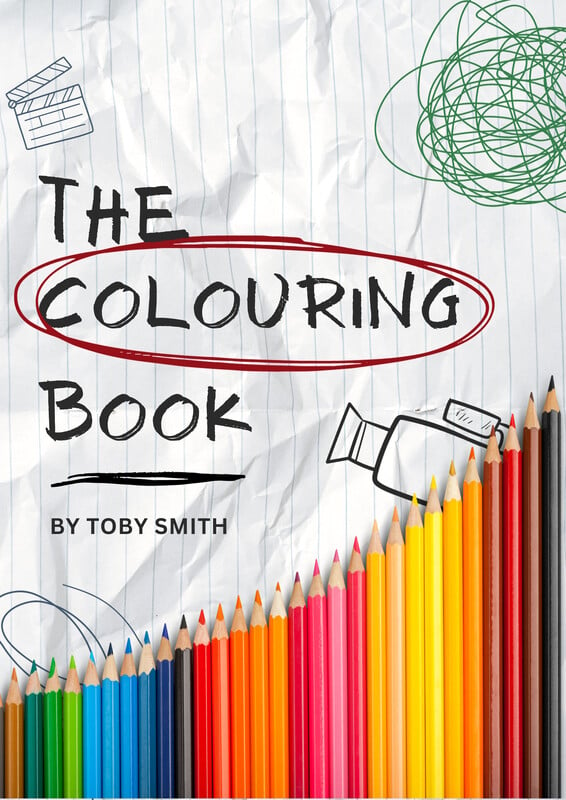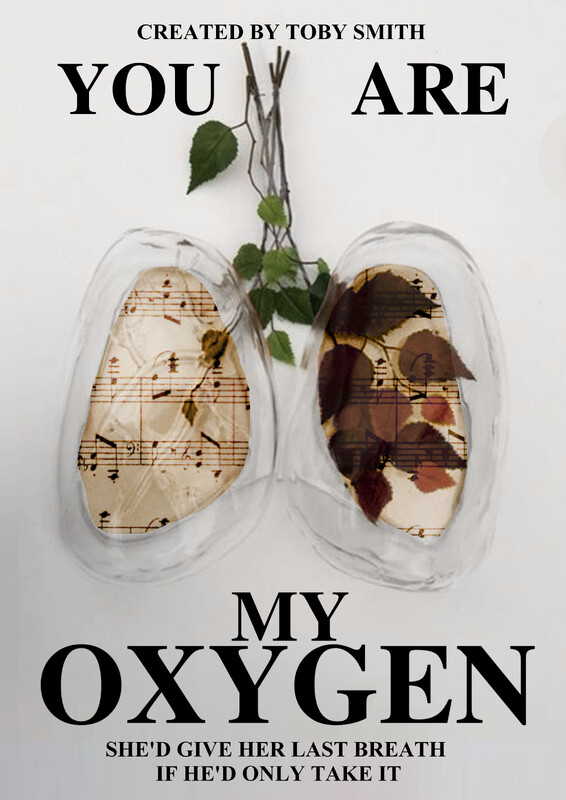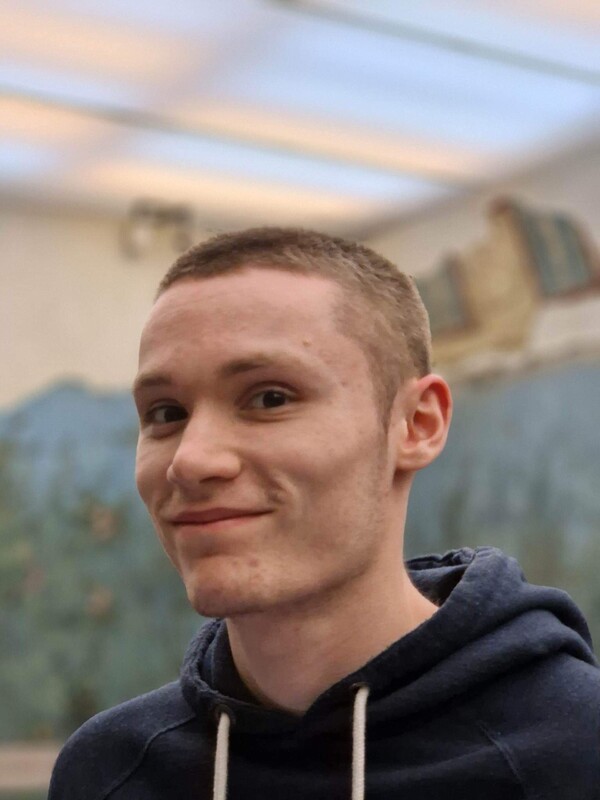Toby Smith
Writer of The Colouring Book and You are my Oxygen
Toby is a screenwriter and certified cinephile. He has an eclectic taste, from splatter-fests to Polish arthouse, and is always eager to explore new genres and storytelling possibilities. He has won several awards - and been nominated for over a dozen others - for his scripts, and is hard at work on getting his "second first film" written, to borrow a phrase.
Toby is a screenwriter and certified cinephile. He has an eclectic taste, from splatter-fests to Polish arthouse, and is always eager to explore new genres and storytelling possibilities. He has won several awards - and been nominated for over a dozen others - for his scripts, and is hard at work on getting his "second first film" written, to borrow a phrase.
What topic do you discuss in your script? And why?
'The Colouring Book' analyses the actor-director relationship and the psychological toll it can have on those involved. It's also about the way in which our behaviour changes when the camera is pointed at us, how it strips us down and makes us vulnerable. I'm doing this to make viewers think about what they're watching, what went into making what they're watching... an active viewer is a participant in the film, and I'd like everyone to be active.
'The Colouring Book' analyses the actor-director relationship and the psychological toll it can have on those involved. It's also about the way in which our behaviour changes when the camera is pointed at us, how it strips us down and makes us vulnerable. I'm doing this to make viewers think about what they're watching, what went into making what they're watching... an active viewer is a participant in the film, and I'd like everyone to be active.

How do people feel after reading your script?
I would hope people feel more aware of the power of film. The images on our screens are not without consequence.
Do you think that films can change people for the better or for the worse?
I think film can change someone positively or negatively. People can live beautiful lives because of the media they consume, whilst others can become miserable. I don't believe, for instance, that an individual film can prompt violence, but a media culture of violence and misery can dampen anyone's spirits, or worse.
According to 3-act dramaturgy, how would you define your story?
In the first act, the director wants to get his daughter to listen to him and do some colouring for the camera, despite her not wanting to. In the second act, they clash and he tries to learn how to "direct," only to reduce himself to a raging tyrant. In the third act, he faces the consequences of this, in the form of an eternal guilt.
How does the main character develop?
The main character, the director, begins with the drive you'd expect from any director: passionate, motivated and so on. He wants to capture this "moment" no matter what. As he faces resistance, the competency you would expect vanishes, and he is reduced to slinging expletives. Then, when he faces the reality of what he has done, he begins to realise how awful he is, how sick this desire to "capture" is, which forces him to reflect on who he is and what he does. It is up to the audience to decide whether or not he comes to any finite conclusions.
What actors do you imagine in your project (typologically)?
I think Paddy Considine would be great as the director. His work in 'Dead Man's Shoes' shows he has a vulnerability and a fiery intensity that would really suit the character. I have no concrete ideas as to who would play the daughter, though they would have to be able to capture a childish tantrum perfectly.
Why do you think your script should attract director?
I think it would be a good showcase for performance, so a director could really show their skill with actors. It's also a story with a blend of realism and surrealism, so managing to move between the two requires a great deal of finesse. Any director worth their salt would be up for the challenge.
At which festivals did you receive the award?
I have submitted the script to numerous festivals and am currently awaiting feedback. I'm very excited to hear what is said.
Which screenwriters are your favorite and why?
My favourite screenwriters are Krzysztof Kieslowski (and Krzysztof Piesiewicz), Michael Haneke, David Lynch, David Cronenberg, Ingmar Bergman... I could go on.
About which topics are your screenplays?
As stated prior, it's all about the actor-director dynamic, about directors' muses.
What motivates you the most to write screenplays?
A lot of people always say, "if you want to write, read," but I think this goes along with something else. If you want to write, watch. Ideas come to me not in words but in images. The idea for 'The Colouring Book' came with an over the shoulder of a child colouring, and I can trace that shot back to a Haneke film I saw... if you're not open to watching all kinds of cinema, your ideas will never branch out beyond what you already have.
What are your plans in future careers?
In the future, I'm planning on collaborating on writing a feature script, as well as completing my first solo feature script, which asks questions about the ramifications of reproducing real-life tragedy on film. I hope to finish it soon.
***
What topic do you discuss in your script? And why?
The script explores the nature of mortality and how we, as humans, try desperately to defy it. The characters and scenarios are inspired by people and events from my own life. The story is the way it is because death is the one thing that unites us all as humans, and yet so many of us refuse to accept it. I guess the story essentially asks us why we are like this, though I don't want to get to answering that anytime soon.2. People who have read the script cite it as emotionally resonant, with strong characters that feel very real. I've always been very happy with what people have said, everyone's been very kind. My main fears with my work usually relate to characters, so it's always good to hear I've written something that feels real.
The script explores the nature of mortality and how we, as humans, try desperately to defy it. The characters and scenarios are inspired by people and events from my own life. The story is the way it is because death is the one thing that unites us all as humans, and yet so many of us refuse to accept it. I guess the story essentially asks us why we are like this, though I don't want to get to answering that anytime soon.2. People who have read the script cite it as emotionally resonant, with strong characters that feel very real. I've always been very happy with what people have said, everyone's been very kind. My main fears with my work usually relate to characters, so it's always good to hear I've written something that feels real.

Do you think that films can change people for the better or for the worse?
Absolutely, films can change people, though I believe the culture surrounding a film has a greater influence than the film itself. A culture of violent films will no doubt alter the brain chemistry, desensitising a person to real-world violence. It will not, however, incite someone to commit violent actions.
According to 3-act dramaturgy, how would you define your story?
In the first act, the gradual emergence of a respiratory condition interrupts the quiet life of a newly married couple, Sara and Johan. In the second act, the worsening of this condition prompts Sara to assume the role of sole carer for Johan, whilst Johan tries desperately to maintain his agency. In the third act, the inevitability of failure forces Sara to confront the ultimate loss.
How does the main character develop?
My main character goes through a very big change. Sara goes from believing she is the only one who can save Johan, to ultimately relinquishing control and allowing him the one thing he wanted: choice.
What actors do you imagine in your project (typologically)?
I think Mia Goth is one of the finest actresses working today. She has that intensity that would be perfect. For Johan, I don't have any concrete ideas. Alexander Skarsgard is a marvellous actor, and I know his chemistry with Mia Goth is there, as they were both terrific in Infinity Pool.
Why do you think your script should attract director?
It's a small, intimate drama, with few locations and fewer characters. It could therefore be made on a low budget, with emphasis on performance and the more technical aspects of filmmaking.
At which festivals did you receive the award?
I have currently received two awards - Best Original Screenplay and Best Drama Script - from the 8(1/2) Film Awards and two Official Selections, though I am awaiting news on nearly twenty other submissions.
Which screenwriters are your favorite and why?
I like writers who use their scripts to ruminate on things. I like the postmodernist writers because they deconstruct film and break it into pieces. I'm a big fan of Michael Haneke, Jean-Luc Godard (1980 onwards) and David Lynch.
About which topics are your screenplays?
My screenplays are very often about trying to overcome trauma, as well as the different ways we go about that. For Sara, her way of overcoming her trauma is to try and prevent a similar event happening in the present, which she believes will relieve her woes. A lot of my characters have similar struggles, but I'm trying to branch out and explore characters with different perspectives.
What motivates you the most to write screenplays?
I find motivation in everything, but my main source of motivation comes from the films I watch. I am a cinephile. I love watching films. I love reading about films, analysing films... Put simply, I love films. Seeing a film that excites me is all the motivation I need to keep going. If a medium has that much power over me, I know it is the medium I want to pursue.
What are your plans in future careers?
My plans in the future are to direct my first short film and begin trying to get a feature script off the ground. You Are My Oxygen could be that script. We'll see.

